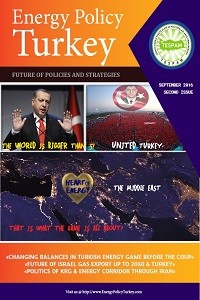Öz
Kaynakça
- [1] http://rosalux.gr/sites/default/files/publications/ttip_web.pdf [2] https://ustr.gov/trade-agreements/free-trade-agreements/transatlantic-trade-and-investment-partnership/readouts/round1
Öz
The European Union (EU) and the
United States of America (USA), as the most powerful economies in the world,
have common history, ancestors, and many economical partnerships. However,
there have always been competitive issues between two sides. By analyzing this
competition from the historical window, such as it happened in the Second World
War, USA and some of EU members (which can be assumed as the leader of EU,
Germany for example) had to fight against each other that has been affecting the
current situations in the background.
On the contrary, during the
Cold War they had accelerated economic relationships. Moreover, after the Cold
War they had also maximized their economical partnership and decided to have a
comprehensive trade agreement to increase this partnership to a higher level.
For accomplishing such target,
Transatlantic Trade and Investment Partnerships (TTIP) was announced by USA
President.[1] And
the announcement was later endorsed by the European Commission President
Barroso. The first round of TTIP negotiations took place in the week of July 8
in Washington, D.C., under the leadership of the Office of the U.S. Trade
Representative[2],
and such negotiations are still continuing.
During this period, the spy
scandals occurred between EU and USA. Following that, the penalty for Volkswagen’s
Emissions Scandal came out, then Brexit happened (while waiting for the
negotiations). Currently European Union says Apple broke EU tax rules in Ireland,
and another USA company, Mc Donald’s, is also about to face tax penalty in
Luxemburg, but contrarily the USA files for toxic mortgages between 2005 and
2007 on Deutsche Bank.
In the
light of explicit competition being escalated through political and economic
issues between two allies, this study will try to focus on how it may affect
their energy policies.
Anahtar Kelimeler
Kaynakça
- [1] http://rosalux.gr/sites/default/files/publications/ttip_web.pdf [2] https://ustr.gov/trade-agreements/free-trade-agreements/transatlantic-trade-and-investment-partnership/readouts/round1
Ayrıntılar
| Konular | Ekonomi |
|---|---|
| Bölüm | Makaleler |
| Yazarlar | |
| Yayımlanma Tarihi | 1 Eylül 2016 |
| Yayımlandığı Sayı | Yıl 2016 Sayı: 2 |
Kaynak Göster
Energy Policy Turkey is a Trade Mark of TESPAM


